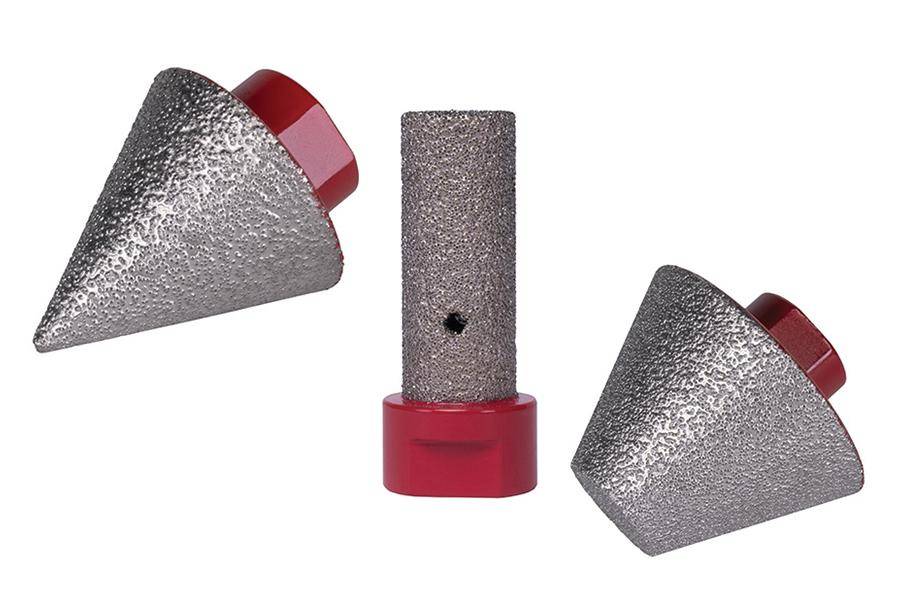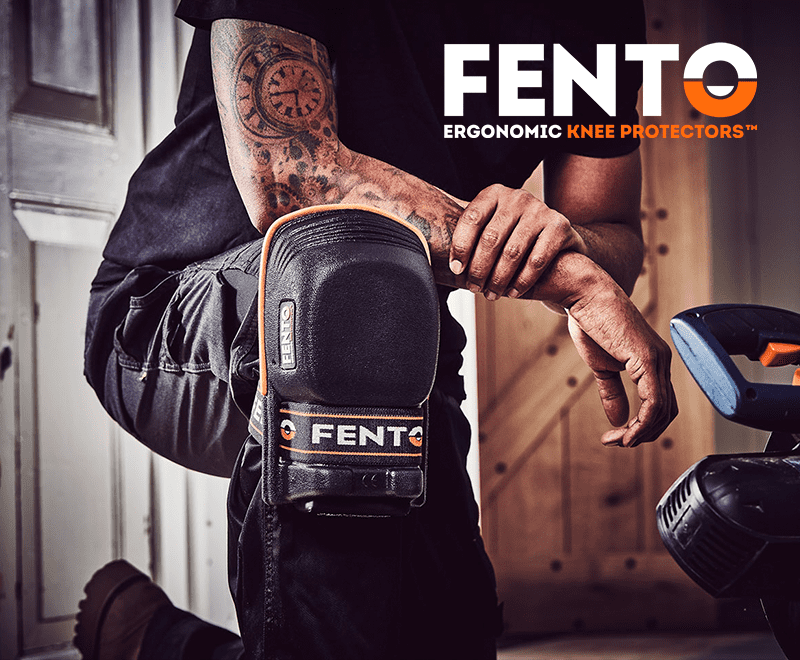Since 1951, RUBI says, its brand has become synonymous with quality and innovation in the tiling industry worldwide. With products launched every year, as well as updates made to existing lines, its tools can be found “on any tiling and construction worksite across the UK”.
The company has recently launched an update to its most popular levelling system, the Cyclone. This twist cap levelling system works by adding the clips underneath the tiles when they’re laid and then adding the twist cap, aiming to ensure a consistent level across their work. These clips are said to be particularly useful when working with large format tiles.
Until recently, this levelling system offered solutions for tile spaces from 1mm up to 3mm, which is suitable for tiles up to 15mm thick. However, the UK is seeing a change in the market with thicker tiles starting to be used internally, as well as externally. RUBI’s cyclone levelling system now offers 5mm bases which work with 20mm tiles, in line with the British Standards. They also save time and effort by reducing the need for excessive manual adjustments and allow for faster installation.
Working as a two-in-one levelling system and tile spacer, this kit is designed to give the tile setter everything they need when it comes to levelling.
With their latest addition to the company’s diamond tool range, its bullnose grinder bits are designed to offer the option of obtaining a professional-looking edge finish on tiles, particularly porcelain and natural stone, for tiles up to 20mm thick.
In the past, you might send your tiles off to a stone mason to get the desired finished edge for your work. But now, tilers can make these finishes themselves, the company says.
While RUBI’s pro edger tool can also be used for creating mitres and half bullnose profiles, the recently launched half and full bullnose grinder bits allow for more creativity and versatility. Tilers can easily switch from one bit to the other with an M14 thread connection variable speed grinder. These tools are designed for those confident with their skills to freehand the finish they’re looking for.
These grinder attachments reportedly work on any variable-speed grinder with an M14 thread. The recommended RPM is between 6,000 and 8,000 and the company recommends using it with a corded grinder.
The bits are suitable for porcelain stoneware, natural stone and other landscaping materials, making them suitable for various tiles used internally and externally.
Further adding to its increasing line of diamond tools, the company has introduced a line of conical drill bits: the Diamond Drill Bits for Grinding. Their exceptional durability and precision, the company says, allows previously drilled holes to be widened, elongated, and smoothed.
Designed in various sizes and shapes, these bits attach to a variable-speed grinder with an M14 threaded connection. With a grit size of 50/60, these bits are said to be rough enough to tackle demanding work, creating suitable shapes for light fixtures, pipes, electric sockets, and any other type of grinding and smoothing work needed.
The body of the cylindrical drill bit models has also been provided with holes that help to improve the cooling of the drill bit during grinding work.
As with the rest of the products in the diamond family, RUBI recommends always using the necessary personal protective equipment for the use of diamond drill bits for grinding. While these bits are not suitable for drilling holes into a tile, they work in conjunction with drill bits to create wider holes that can be custom shaped to fit around any of the fittings a tile setter faces in their daily work.
“The adaptations RUBI makes to its current and new lines of tools always keep the safety of tilers, landscapers, and construction workers at the forefront of their designs,” the company concludes. “With the new products released this year, the working life of the tiler has never been made easier with RUBI tools.”
www.rubi.com/en









